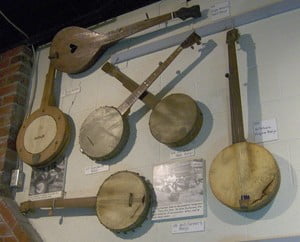In general, musical instruments are terrible investments. Unless you have an extremely sought after instrument, it is hard to get back your money. Worse yet, repairs and maintenance is almost never a sound investment. Keeping a musical instrument is an act of love, not investing. That said, when it is time to sell your instrument, you want to recover as much as you possibly can. Here are a few tips to get you going.
Know Your Instrument Value
When selling an instrument, it pays to know if it is a classic or a pile of parts. Just knowing the name of the instrument model with manufacturer and year of production is a good start. Knowing if it is playable is the next step. Models that are playable are always preferred to a broken instrument for obvious reasons.
Keep Your Repair History
This is the step many people forget. The little tag with the list of repairs done from a respectable shop can carry a lot of weight. It demonstrates an instrument that was loved and maintained and helps people to trust in your instrument’s value. When I listed my saxophone, the first questions I got was about the repair history, asking for dates and specific repairs. I had it on hand, and it helped the buyer and I to come to an arrangement.
Sell It Yourself
Obviously, music shops and pawn shops have to make a profit. If you don’t have to unload your instrument for money quickly, take the extra few weeks to sell it yourself. This could mean eBay or craigslist, but you will almost certainly get a better deal if you sell it yourself. Between eBay and craigslist, I prefer craigslist if you live near (within one and a half hours drive from) a city. My preference comes from the numerous fees (listing, selling, PayPal) eBay may hit you with. While not onerous, the difference could be $100 that you keep in your pocket by the end of it.
Hold Out a Bit
Don’t despair if the first offer is low. Like any resale, some people can’t afford higher prices and offer what they can hoping for the best, but if you hold out for bigger fish, you may do better. If all of the offers come in very low, you may have overestimated the value of the instrument, and it is time to relist it with a lower asking price.
Odds are, you will lose money on an instrument over time. Unless you bought it well below market value, the loss is the price you pay for an excellent instrument the help you practice your art. Being patient, doing your research, and keeping your repair history will all help in getting you back the most on your sale.
References:
Frugal For Life: Pros and Cons of eBay vs. Craigslist
Music Ed Magic: Selling Musical Instruments on eBay
